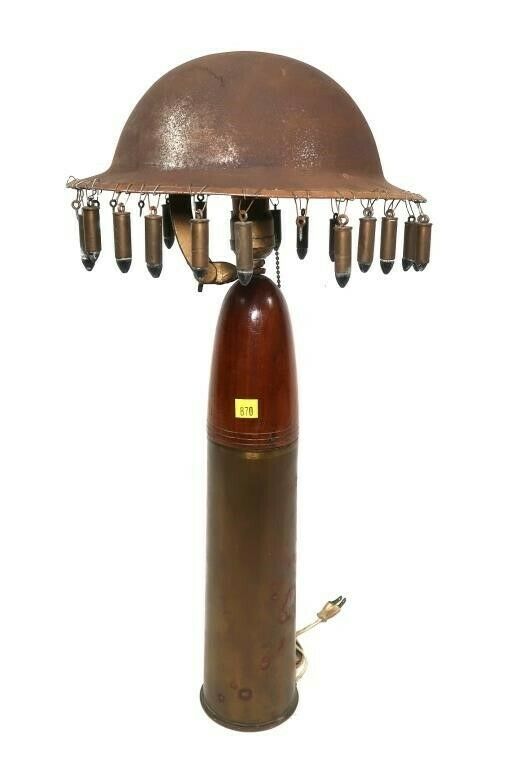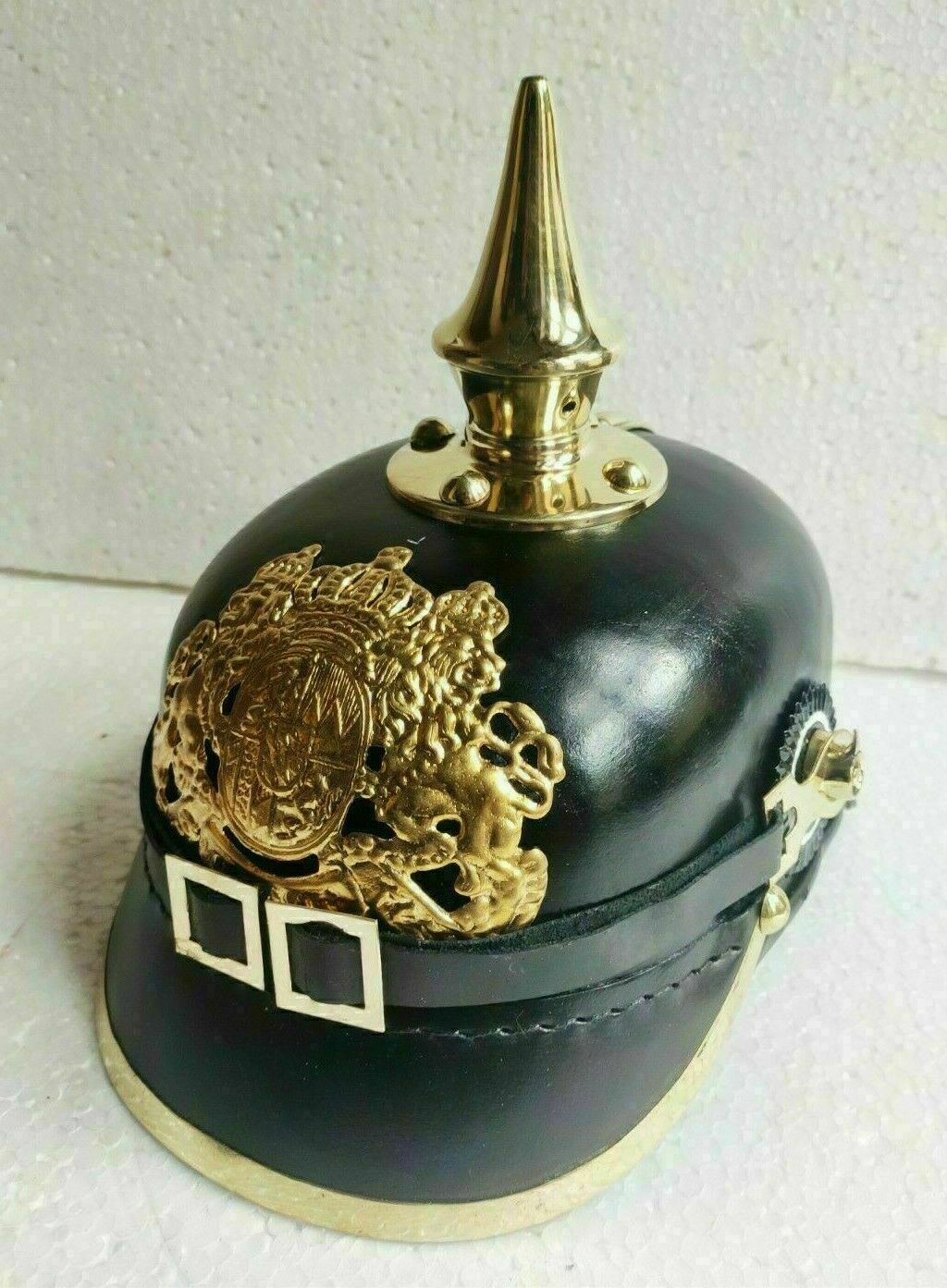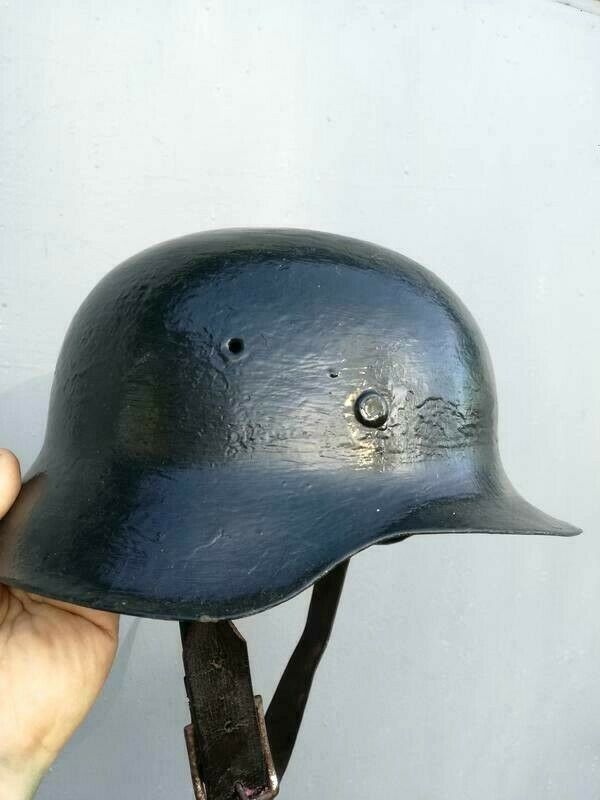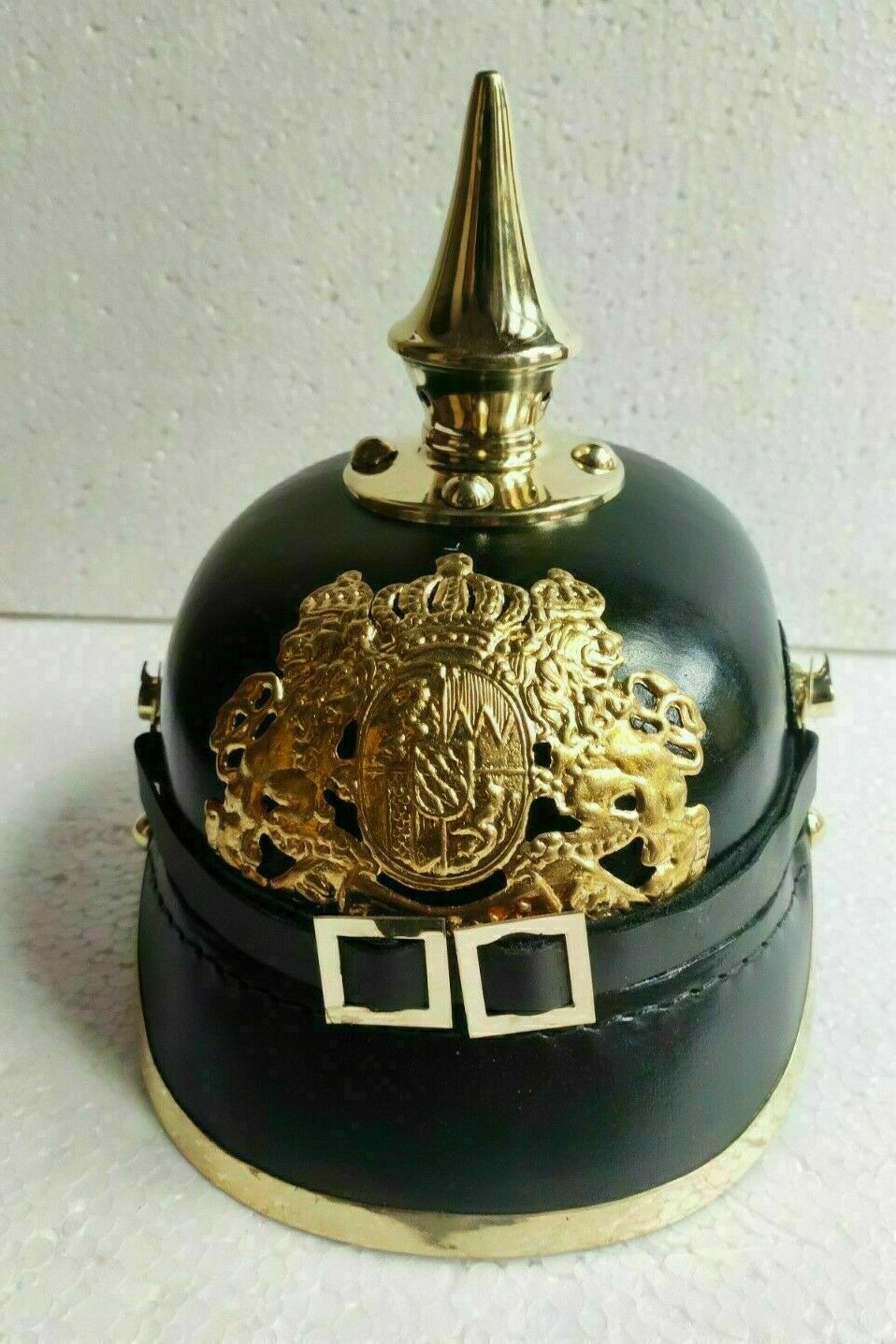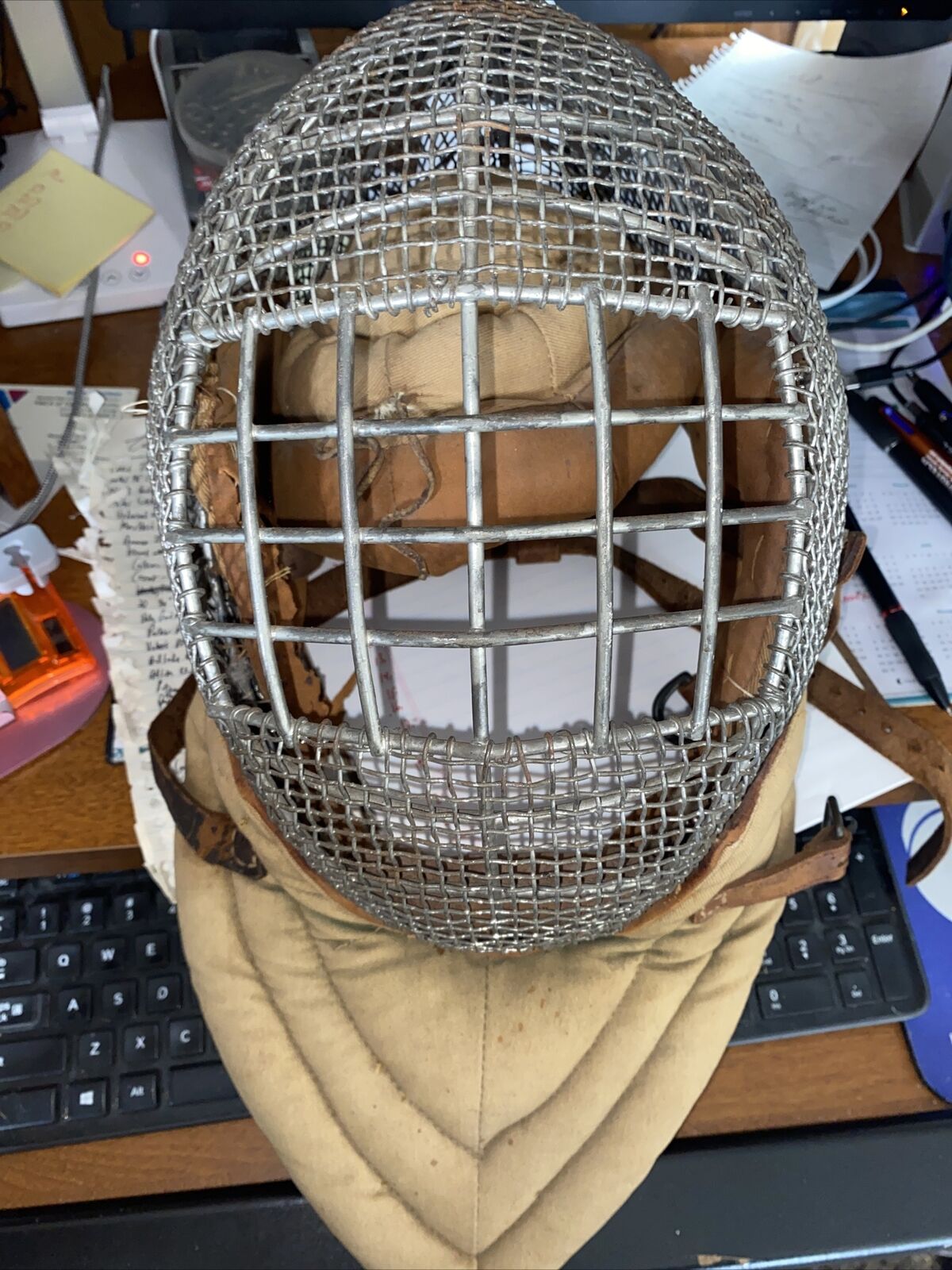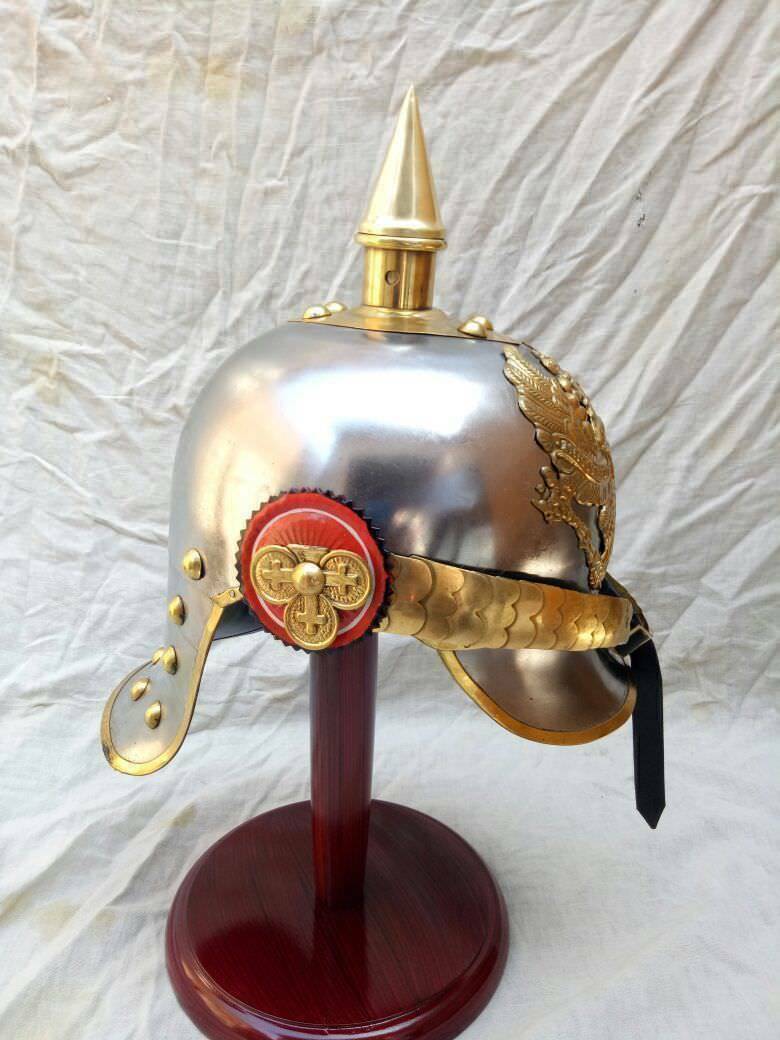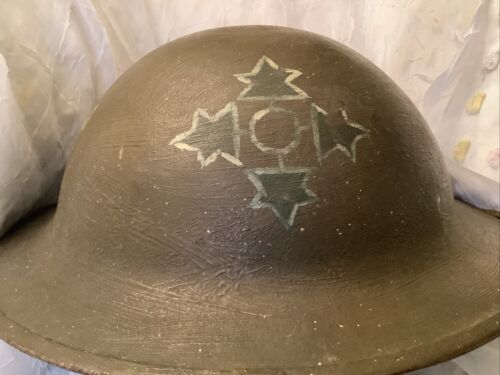-40%
Antique WWI Steel Combat Doughboy Shrapnel Helmet
$ 126.71
- Description
- Size Guide
Description
For sale is an Antique WWI Steel Combat Helmet measuring 11 ¼” across by just under 12” from front to back with a height of approximately 5” from rim to top. We purchased the helmet at an Estate Sale and were advised that it is an American Doughboy Helmet.The Doughboy helmets were originally adapted from the British Brodie Helmet. However
, more recently, we were also advised that it is most likely a British Civil Defense Helmet with the red paint likely indicative of use by a fire brigade. The helmet has a red exterior, which makes us think it was painted over the original color (green) on the underside.
It is in great condition for its age with the expected wear and has no dome liner or chin strap which can be easily added if desired. Please examine all photos carefully prior to purchase. The helmet will be professionally packed and shipped.
History of the Doughboy Helmet:
The Brodie helmet was a steel combat helmet designed and patented in London in 1915 by John Leopold Brodie. In modified form it became the Helmet, steel, Mark I in Britain and the M1917 Helmet in the U.S. Colloquially, it was called the shrapnel helmet, Tommy helmet, tin hat, and in the United States the doughboy helmet. Worn by Australians during WW2 and sometimes known as Panic Hat. It was also known as the dishpan hat, tin pan hat, washbasin, battle bowler (when worn by officers), and Kelly helmet. The US version, the M1917, was copied from the British Mk 1 steel helmet of 1916. The German Army called it the Salatschüssel (salad bowl). The term Brodie is often mis-used. It is correctly applied only to the original 1915 Brodie's Steel Helmet, War Office Pattern, although these
helmets were adapted for use by various nations.
United States
M1917: initially the United States purchased 400,000 British Mark I helmets to equip the American Expeditionary Force in 1917, and those units which were to integrate with French formations were provided with Adrian helmets. The first US made copies of the Mark I were supplied before the end of 1917 and some 2,700,000 had been made by the end of the war. The M1917 differed little from the British original; different rivets were used to secure the liner, the wire loop onto which the chinstrap was fixed was thicker and the rubber "doughnut" pad was not adopted. However, the US manufacturers were able to produce a shell with better ballistic protection than the original.












